
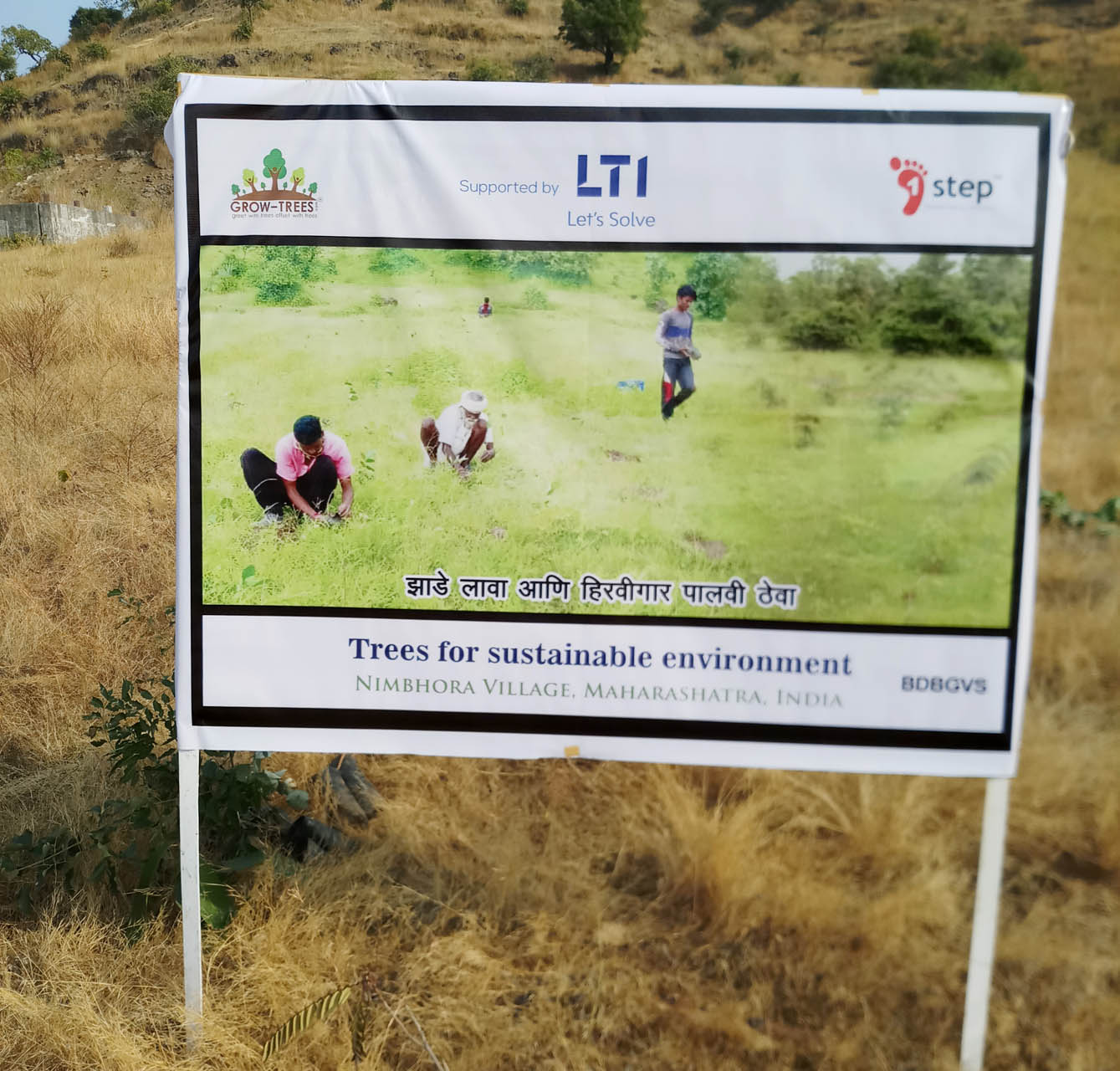
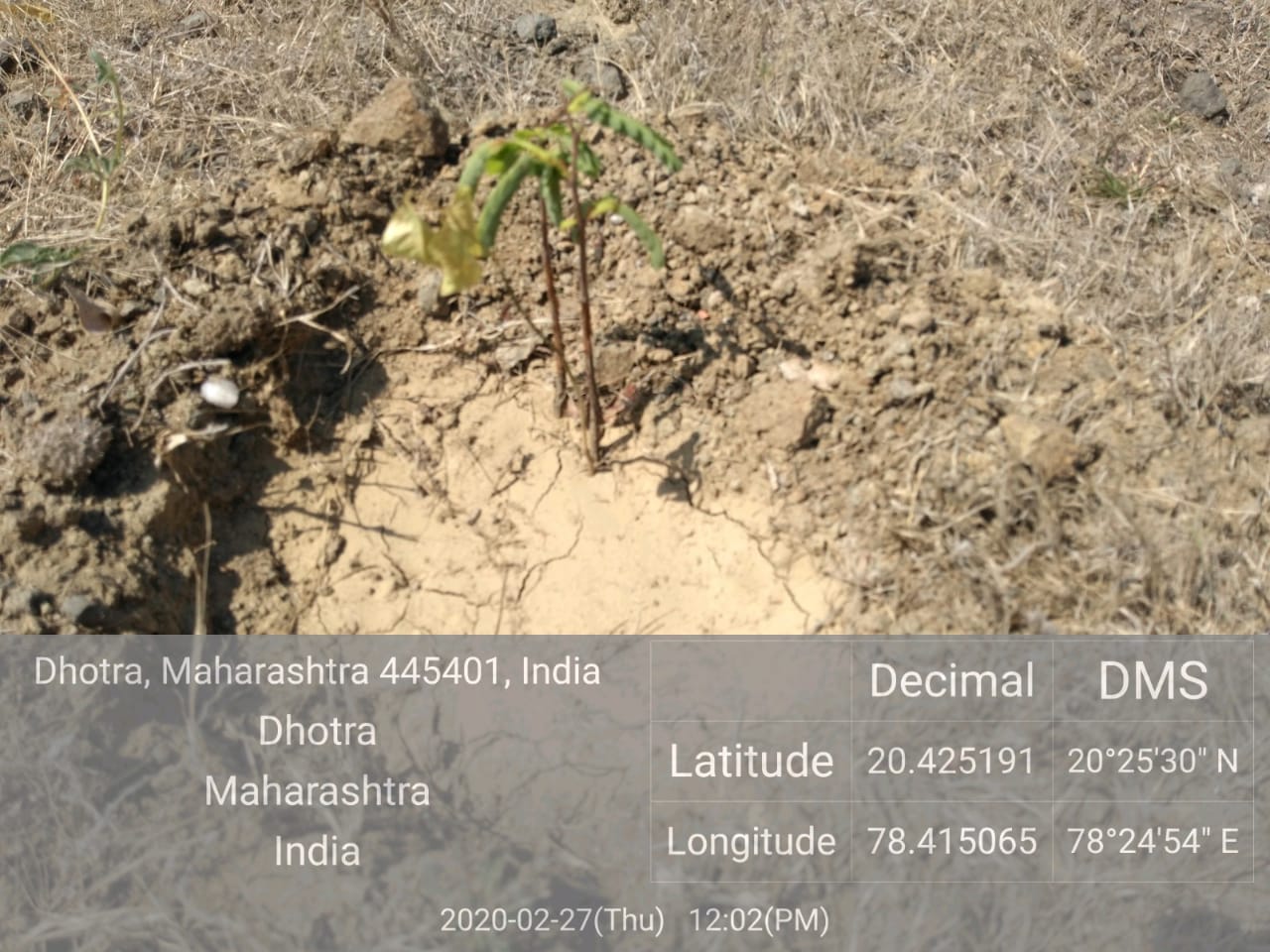
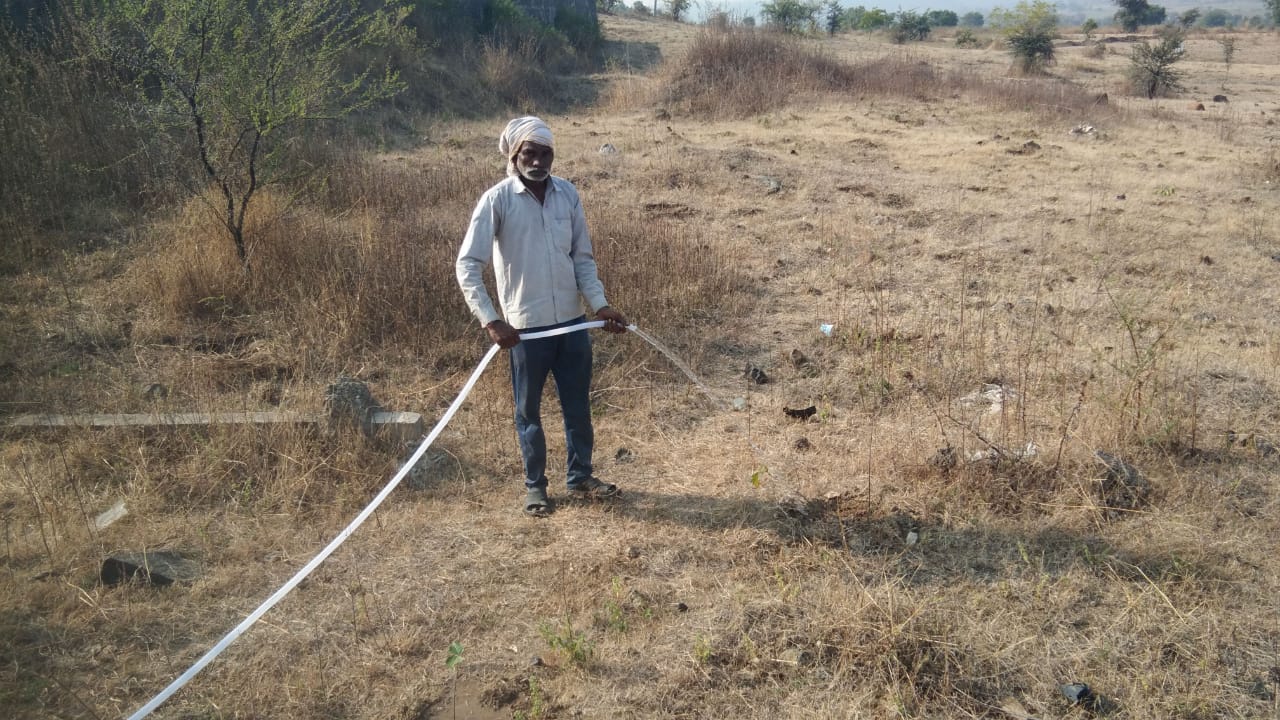
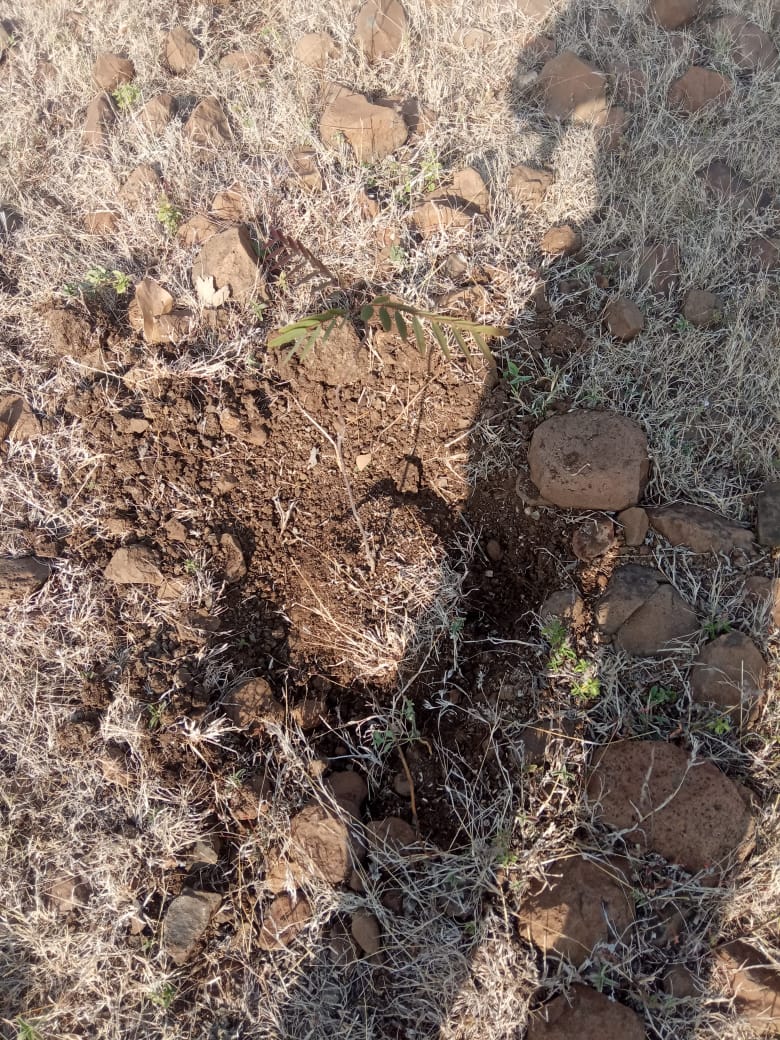

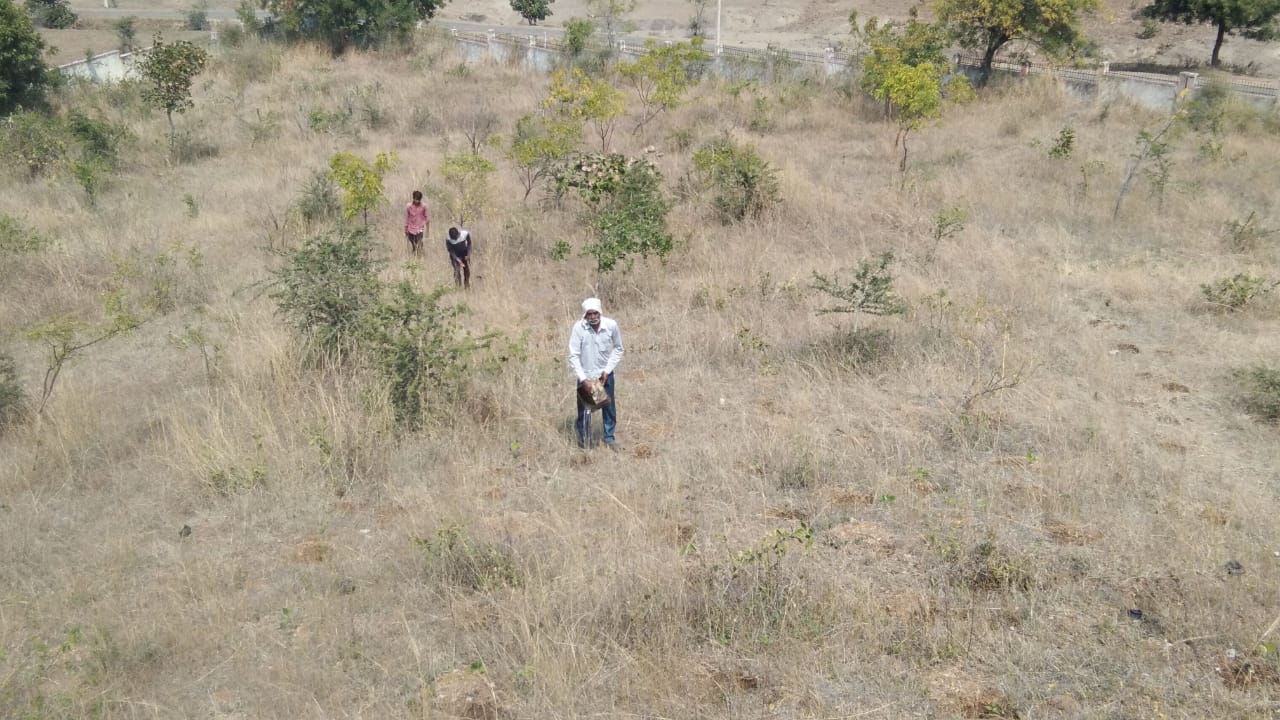
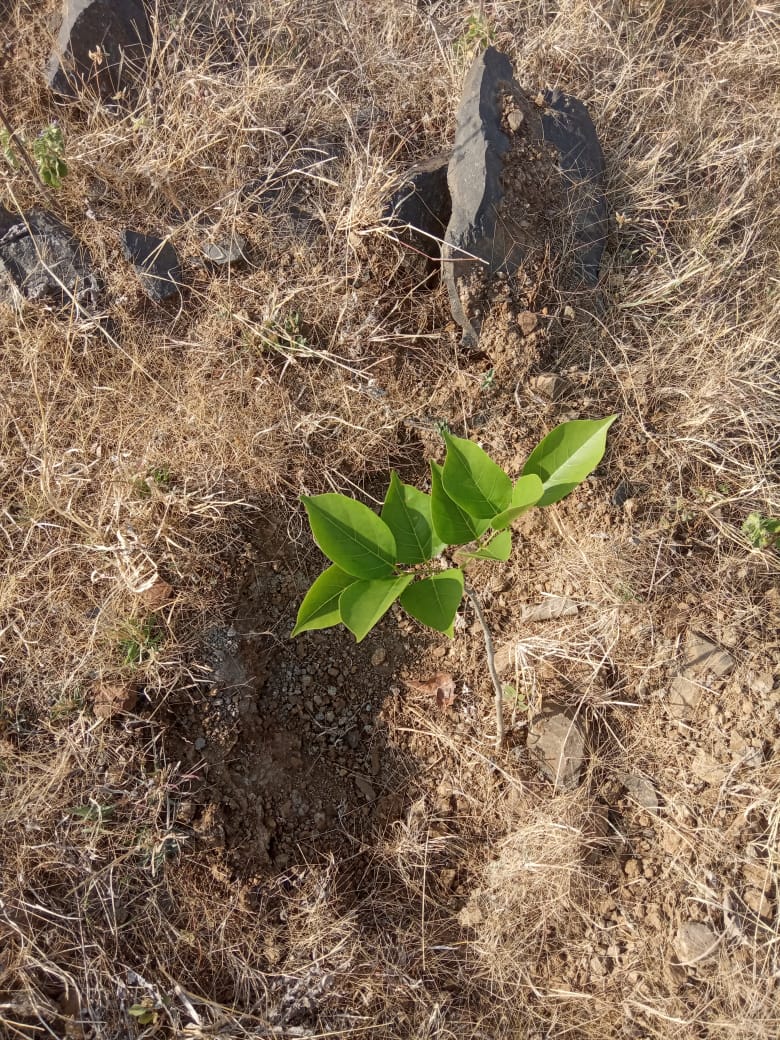
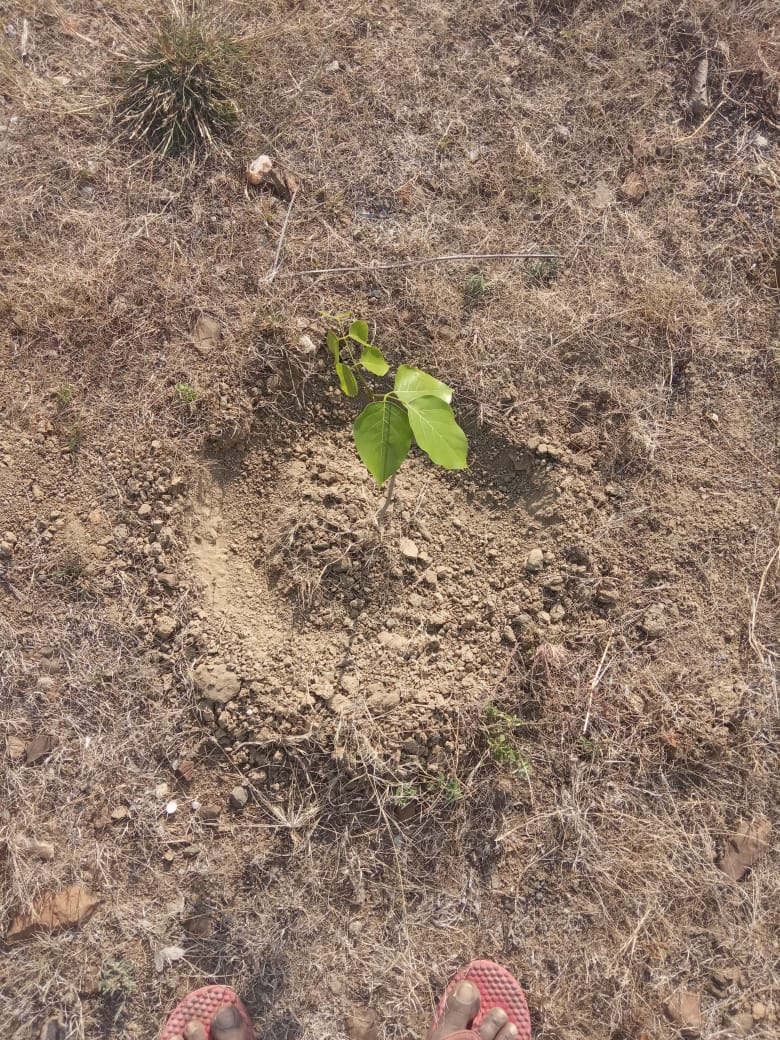
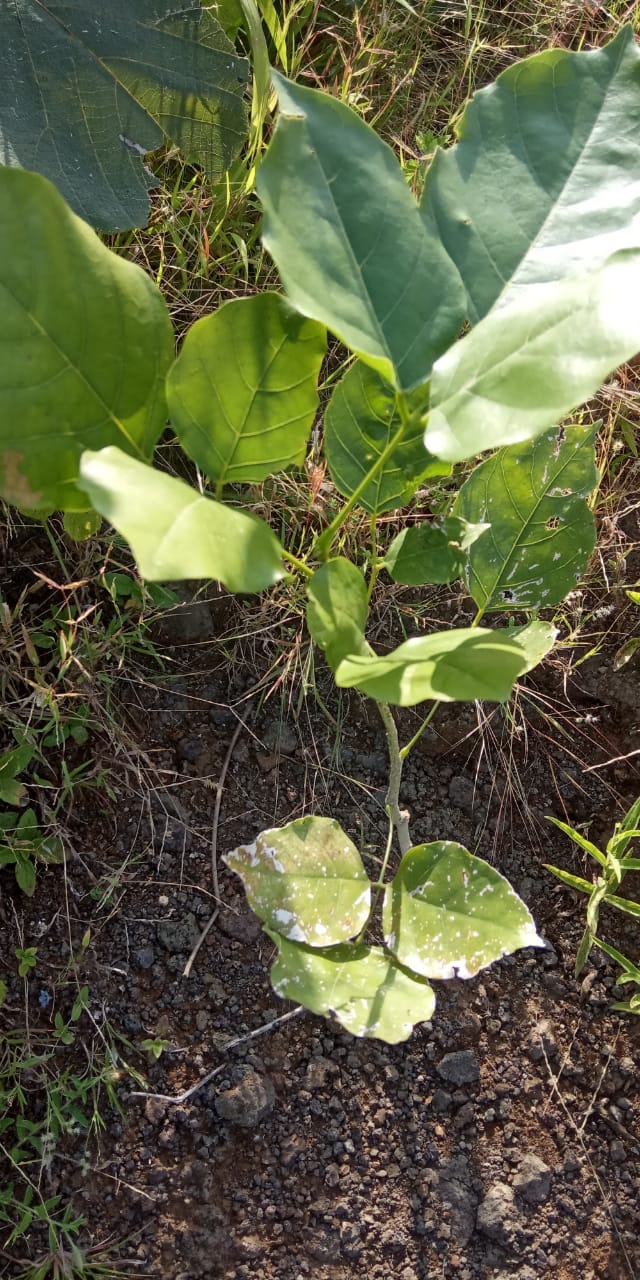
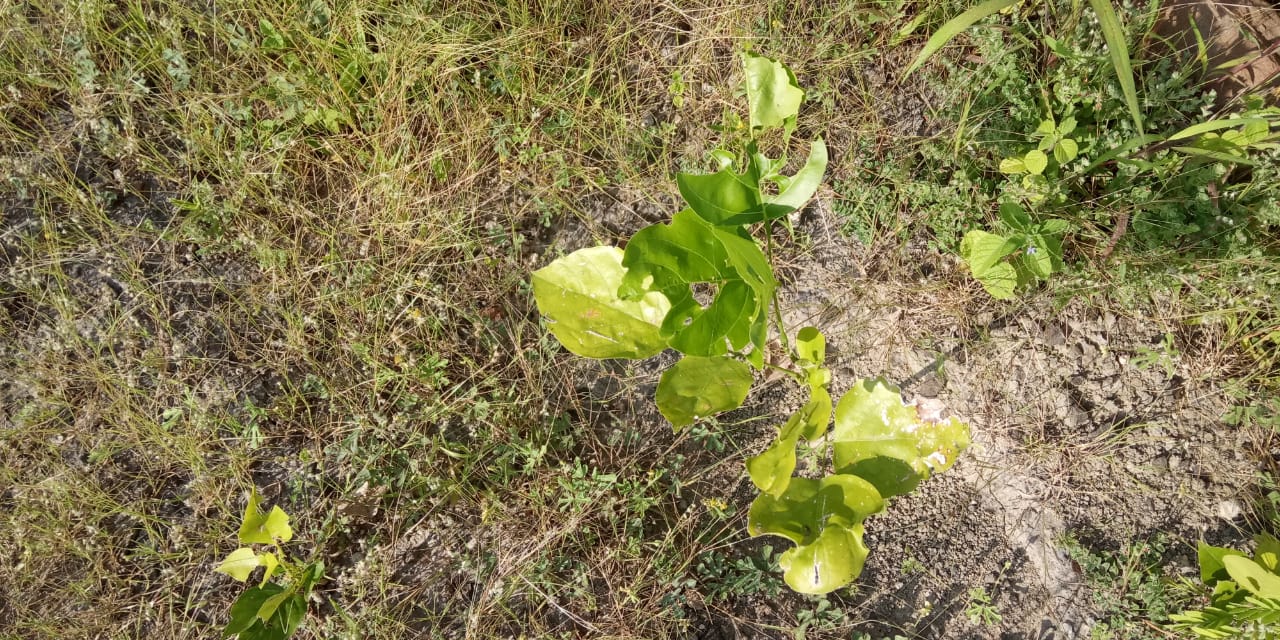
Project Target
0% Remaining
106,272
Trees Planted out of 106,272 Trees

Project Location:
Plantation of trees on government land in the village of Nimbhora-Tirzada, Tehsil Kalamb, District Yavatmal, Maharashtra.
Project Aim
Trees are extremely influential to the lives of the tribal people. An article by Prakash Tripathi of Ambedkar University, Delhi ‘Tribes and Forest: A critical appraisal of the tribal forest rights in India’, highlights the role of the forest in fulfilling basic needs of tribal communities, like clean water, food, medicines, shelter and even recreational opportunities. They practice shifting cultivation in the forests and collect the minor forest products to support their livelihood. Forests also contribute to the cultural/spiritual beliefs of the people, making the forest ecosystem an indispensable part of the daily lives of the people.
Severe droughts are a regular phenomenon in the plantation area. This threatens not only agriculture but other types of livelihood like livestock rearing as well. Due to the scarcity of fodder, water and other monetizable assets, people were forced to sell the animals that provided them with food, livelihood and labor during farming, at huge losses. Trees regulate the climate to prevent drought-like situations, thereby preventing losses to the community.
The most important tree making an impact on the area is the drumstick (Moringa oleifera), referred to as the miracle tree. In the article by Mekonnen Daba, ‘Miracle Tree: A Review on Multi-purposes of Moringa oleifera and Its Implication for Climate Change Mitigation’, he mentions the importance of the tree in the production of medicine, animal feed fortification, water purification, and climate change mitigation, thus making it an ecologically and commercially viable species to plant in the region.
Neem (Azadirachta Indica), Jackfruit (Artocarpus Heterophyllus), Drumstick (Moringa Oleifera), Kashid (Cassia Siamea), Bamboo (Bambusa Sp.), Tamarind (Tamarindus Indica), Custard Apple (Annona Reticulata), Karanj (Millettia Pinnata), Palash (Butea Monosperma), Khair (Senegalia Catechu), Shiras (Albizia Amara), Amaltas (Cassia Fistula), Amla (Phyllanthus Emblica), Jamun (Syzygium Cumini).
The drumstick plant is extremely valuable in the production of nutritious food for the community as well as commercial sales. Every part of the moringa tree, its root, bark, leaves, and seeds are useful in Ayurvedic food and medicine making it extremely valuable, according to Vandana Shiva and Maya Goburdhun in their article ‘Musings on the Moringa’ dated November 07, 2014. The trees planted will alleviate the drought conditions as the trees planted will facilitate conservation of the water table, induce rainfall through transpiration and add humus to the soil. They also function to absorb carbon dioxide and release oxygen. They will enhance the soil's nutrition profile and impact agricultural output positively. Thus, the project in the area with a focus on the plantation of local tree species and creating sustainable livelihoods for the local people it is an important step forward for the economy of the region.
| Name of the Company | Number of Trees Adopted | Year |
| Larsen & Toubro Infotech | 11, 562 trees | FY 2018-19 |
| Blue Dart Express Limited | 10,000 trees | FY 2017-18 |
NOTE: Even though Larsen & Toubro Infotech has supported 67,500 trees, Grow-Trees has planted 80,000 trees to ensure a high survival rate.
Social Impact of Growing Trees
Community Engagement
Tree planting initiatives often involve local communities, which can lead to greater community cohesion.
Ecological Education
Provides opportunities for community members, especially children, about the importance of environmental sustainability.
Urban Beautification
Trees contribute to the aesthetic enhancement of urban areas, making cities more pleasant and liveable.
Climate Resilience
By improving green cover, tree planting helps make communities more resilient against climate impacts like heatwaves.
Employment Creation
Planting trees creates employment for local community members like planting and maintenance, administrative roles, and more long-term jobs in management.
Wildlife Habitat
Trees provide critical habitats for various species of wildlife. Enhancing tree cover helps preserve biodiversity, which can be an ecological boon for local communities
Copyrights @ 2025 All rights reserved by Pangea EcoNetAssets Pvt Ltd.